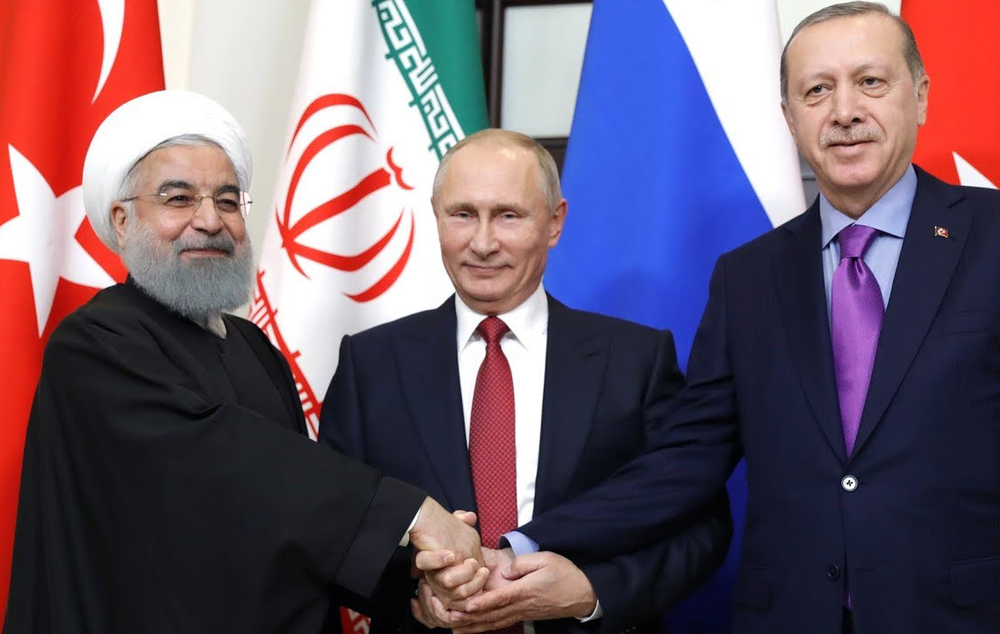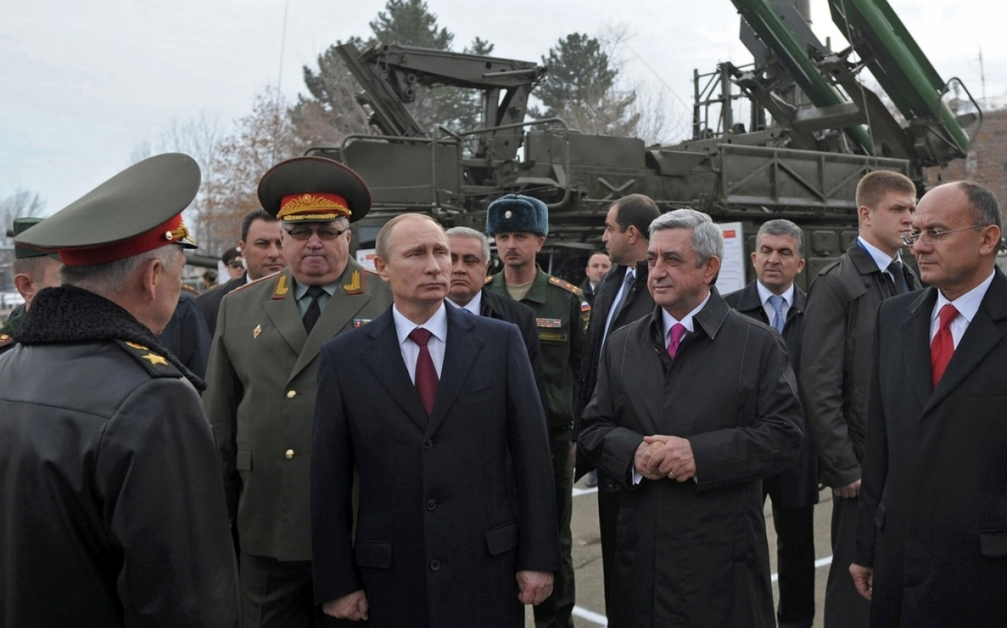On September 7, Russian President Vladimir Putin and Turkish President Recep Erdogan met with Iranian President Hassan Rouhani in Tehran for a trilateral meeting on the future of the war in Syria. The three major military powers meet as the Syrian Arab Army prepares to launch an offensive against the last major rebel stronghold in the country.
Russian Major General Alexei Tsygankov told reporters that more than 70% of the territory in Idlib is currently controlled by terrorist groups. However, US General Joseph Dunford estimates that there are only 20,000 to 30,000 militants in Idlib, out of a total population of three million.
Jihadist and rebel groups operating in Idlib include Hayat Tahrir al-Sham (HTS), Turkish-backed National Liberation Front, Hurras al-Din, and the Turkistan Islamic Party. According to Tim Ripley, a defence analyst and author of Operation Aleppo, HTS is ‘the largest and best armed group in Idlib, which means the other small groups follow its lead – even if they say they are separate.’

HTS holds majority control of the province, including the capital city and the Bab al-Hawa Border Crossing between Syria and Turkey.
Turkey is opposed to an offensive, and the Erdogan government has expressed its concern over the significant number civilians and terrorists that will flee across the border. ‘Idlib isn’t just important for Syria’s future; it is of importance for our national security,’ Erdogan explained. ‘Any fight against terrorists requires methods based on time and patience.’
The country is already accommodating more than three million refugees, and integration is no mean feat. Tensions have risen in Istanbul, Ankara and Izmir, where the escalating economic crisis has exacerbated inter-ethnic rivalries.
In May 2017, Idlib province was branded a ‘de-escalation zone’ in an agreement signed by Iran, Russia and Turkey. The agreement was designed to ensure undisturbed humanitarian access and to encourage the return of displaced civilians. Of course, the three signatories were responsible for enforcing the deal, rampantly increasing their involvement and influence in Syria.

Now, with renewed airstrikes and the impending military offensive, the civilian population is a major concern. Linda Tom, a UN official, told Agence France-Presse that ‘up to 800,000 people could be displaced and that the number of people who are in need of humanitarian assistance, which is already high, could increase dramatically.’
Additionally, the international community have highlighted the potential civilian lives threatened by an operation. The UN Security Council also convened on Friday and were briefed by Staffan de Mistura, UN Special Envoy for Syria, who said there were ‘all the ingredients for a perfect storm.’
Karen Pierce, UK Ambassador to the UN, named units and commanders of the Syrian Arab Army posted around Idlib. At the Security Council meeting, she gave a firm warning that there would be dire consequences for any civilian casualties as a result of a military offensive.
US Ambassador Nikki Haley echoed this warning, underscoring the fact that rebel groups in the region could be targeted without civilian casualties. Before any assault takes place, civilians should be granted safe passage out of the province.
Last week, De Mistura iterated that both the Syrian government and the rebel forces were capable of manufacturing chlorine-based chemical weapons. Despite accusations, Assad’s government deny using any form of chemical weapons, and Russia labelled any such occurrences as rebel-organised ‘false flag’ attacks. Nonetheless, the US has threatened to intervene if any new chemical attacks are conducted.
Meanwhile, at the Tehran summit, Erdogan brought forth a ceasefire agreement and suggested a diplomatic solution be sought. ‘If we can announce a ceasefire today here, I believe this will be one of the most important steps of this summit,’ the president said. ‘An attack on Idlib will result in disaster, massacre and a very big humanitarian tragedy.’
Russia and Iran both rejected the call for a ceasefire. Putin gave the notion that the concerns surrounding civilians was merely a justification for the failure to eradicate terrorism. Rouhani also called for ‘cleansing the Idlib region of terrorists,’ but duly noted the need to protect civilians.
Ultimately, the aim of this military intervention is to secure a victory for the Assad government in the Syrian Civil War. Successfully sieging Idlib from the opposition will hopefully bring an end to more than seven years of hardship. Yet, in a joint statement, the power troika outlined that the crisis in Syria will not be solved by military force alone. A final resolution must be obtained through a ‘negotiated political process.’
Russia has already launched an effort to encourage Western investment in a post-war Syria. The US will support reconstruction efforts if the war is ended through a genuine political process and freedom is returned to the Syrian people. With or without Assad in government, Russia will have secured a regional foothold as it seeks to increase its sphere of influence.
Indeed, dismantling this final stronghold may effectively end the large-scale civil war plaguing the country. However, it is just as likely that a bloodbath will occur, with some three million civilians caught in the midst of an all-out assault.
If such a situation were to occur, the entire country – not to mention the international community – would be in uproar, propelling the nation into a perpetual state of anarchy.






